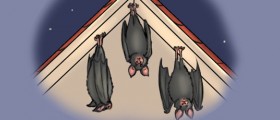
Barking Cough - General Info
Barking cough can be defined as harsh cough which resembles a dog's barking. This particular type of cough occurs in the croup, a medical condition caused by viruses which leads to swelling of the larynx and trachea and interferes in normal passage of the air. Constriction of throat structures is what causes typical barking cough. Many viruses can cause barking cough including parainfluenza virus, adenovirus and respiratory syncytial virus.
Barking cough most commonly affects children between the age of six months and three years. However, it may also affect adults and it is then accompanied by stridor and breathing difficulties. Mild cases can be treated at home. On the other hand, if barking cough causes serious breathing difficulties patients need to be hospitalized. If it lasts long enough and is not treated properly, barking cough can lead to dehydration and serious problems with breathing. Barking cough does not affect all the children. It usually occurs is those who are more susceptible.
Causes of Barking Cough
Viral infections of respiratory tract are generally accompanied by cough. This is a dry and irritating cough which is especially hard to deal with at night. A variety of viruses may lead to onset of barking cough and parainfluenza virus, adenovirus, measles, influenza or syncytial virus are only some of them. The viral infection is spread via tinny little droplets ejected by coughing and sneezing. Toy sharing is one more way of spread of viruses, the indirect one. Some people may also develop barking cough due to bacterial infections of respiratory tract. Still this does not occur very often. And finally, barking cough may be also induced by exposure to inhalatory irritants and allergens.
Symptoms of Barking Cough
Barking cough does not start all of a sudden. Prior this type of cough the patient usually complains about sore throat and the cough is initially dry and irritating. After certain period of time it turns into barking cough. Barking cough tends to intensify over nigh and significantly interferes in sleep. The very cough together with lack of sleep causes extreme tiredness. Patients are generally irritated and anxious. Once the attack of cough has started it lasts for a while. In severe cases barking cough may additionally cause breathing difficulties such as shortness of breath. After and during the attack insufficient supply of the body with oxygen may result in peripheral cyanosis. This requires prompt medical care. If there is evident progression of the symptoms and the cough becomes more severe, lasts longer and causes problems with breathing patients need to be hospitalized as soon as possible.

















Your thoughts on this
Loading...